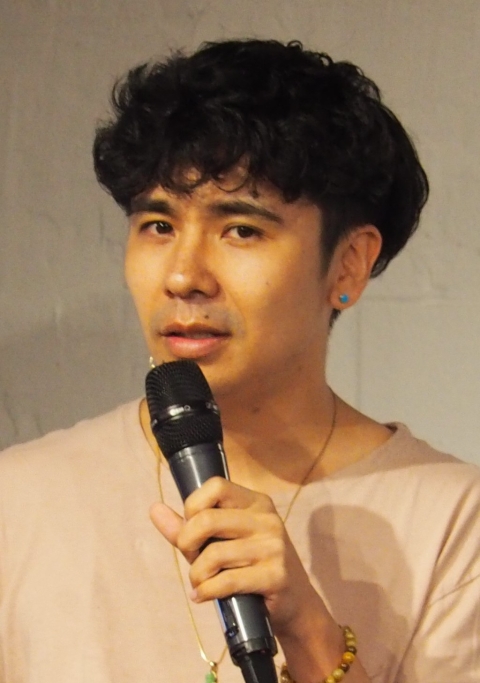The British Empire was one of the largest that has ever existed, spanning the globe. Popularly portrayed in British historical education and textbooks as a relatively benign institution, between the 17th and early 20th centuries, the British Empire profited from its military and economic domination of many other countries, undermined national economies to exploit commercial markets, displaced and erased cultures, and engaged in rampant cultural imperialism, plundering artefacts for its museums, homogenising customs, traditions, religion, language, social and moral norms until every corner of the Empire felt like home and leaving the world culturally impoverished until successive world wars made the Empire impossible to control and former dominions were granted their independence.
The days of the British Empire feel long gone to most, but the last link dissolved as recently as 1997 when Hong Kong was returned to Chinese control after the expiry of the hundred-year lease to Britain on the island expired. Even after the Empire dissolved, the colonial legacy of British imperialism meant its former dominions had more in common with one another than their geographical neighbours, leading to these countries continuing to come together in a global Commonwealth that persisted until Britain joined the European Union. The countries that were colonised, and the people who were displaced and brought up British far from home, have since begun rediscovering and reasserting their traditions, cultures, moral norms and identities in a complex and nuanced process of decolonisation - coming to terms with the legacy of empire, understanding how cultures became intertwined, distilling and evolving towards a new sense of independent identity and healing from the impact of being subject to a foreign power.
These pages chronicle some of the influential people, impact, and events of the British Empire and efforts at subsequent decolonisation.
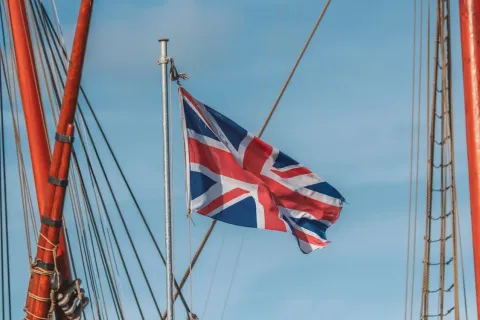
Useful links
In 1497, the Italian explorer John Cabot, sailing under the English flag, embarked on a voyage that led him to the coast of Newfoundland. This exploration was a significant milestone in European exploration of North America since the Norse visits centuries earlier. Cabot's journey was driven by the quest for new trade routes and the promise of untapped resources, which were highly coveted by European powers at the time.
The discovery of Newfoundland by Cabot initiated a new era characterised by cultural and commercial interactions between Europe and the New World. This exploration led to subsequent voyages and the eventual establishment of colonies, facilitating the exchange of goods, ideas, and technologies, which had a profound impact on both continents. European settlers introduced new crops, animals, and tools to the Americas, while they brought back valuable resources such as furs, timber, and fish to Europe. However, this period of exploration and colonisation also had significant and often devastating consequences for Indigenous communities. The arrival of Europeans led to the displacement of Indigenous peoples from their ancestral lands, the spread of diseases to which they had no immunity, and the disruption of their traditional ways of life. The imposition of European culture, religion, and governance systems often undermined Indigenous societies and eroded their cultural heritage.
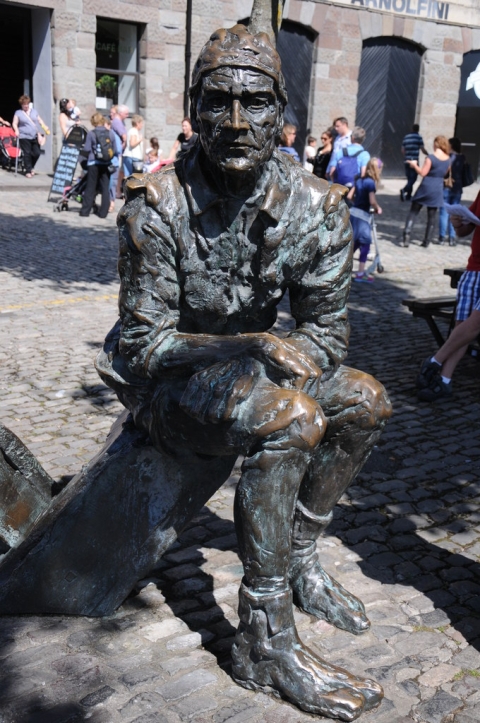
The establishment of the East India Company in 1600 represented a pivotal moment in the history of trade and cultural exchange between Britain and Asia. This powerful trading entity facilitated the flow of goods, ideas and technologies across continents, significantly influencing both British and Asian societies. The East India Company played a crucial role in introducing Asian products such as spices, textiles and tea to European markets, while also bringing European goods and innovations to Asia. However, the Company's influence extended far beyond mere trade, as it gained substantial control over local economies and societies through coercive and exploitative practices. The East India Company established a monopoly over key commodities, manipulated local markets, and imposed heavy taxes on local populations, thus achieving a dominant economic position that enabled it to wield significant political power, effectively governing large regions of India and other parts of Asia.
The impact of the East India Company's rule was profound and lasting. It led to the restructuring of local economies to serve British interests, often at the expense of traditional industries and livelihoods. The Company's policies contributed to widespread poverty and social disruption, as well as the erosion of local cultures and governance systems. The legacy of exploitation and control left by the East India Company continues to be felt in many parts of Asia today.
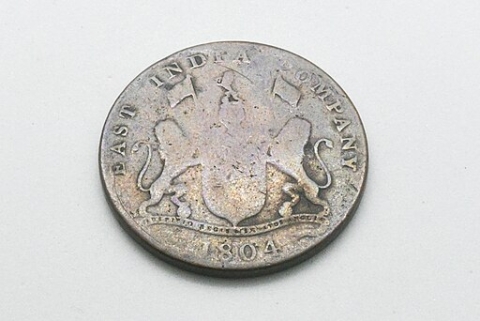
The establishment of the first permanent English colony in Virginia, known as Jamestown, in 1607, signified a pivotal moment in the annals of American history. This event initiated a new era of economic and cultural prospects, thereby laying the foundation for the subsequent growth and development of the region. The economic rationale behind the establishment of the Jamestown settlement was driven by the Virginia Company of London, which sought to exploit the natural resources of the New World. The colonists introduced European agricultural practices and began cultivating tobacco, which became a highly profitable cash crop and a cornerstone of the colony's economy. This economic foundation attracted more settlers and investment, leading to the expansion of the colony.
Culturally, Jamestown became a melting pot of diverse influences. The interactions between the English settlers and the Indigenous Powhatan Confederacy were complex, involving both cooperation and conflict. These early encounters laid the groundwork for future relationships between European settlers and Native American communities. Additionally, the arrival of African slaves in 1619 introduced another significant cultural and demographic element to the colony, shaping its social fabric. However, the establishment of Jamestown also brought significant challenges and disruptions. The colonists faced harsh conditions, including disease, food shortages, and conflicts with Indigenous peoples. The impact on the Powhatan Confederacy was profound, as their lands were encroached upon and their way of life was disrupted by the expanding English presence.
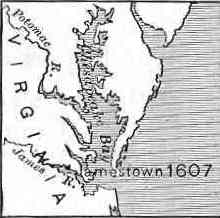
The year 1620 marked a significant moment in history with the arrival of the Mayflower in America, carrying the Pilgrims who sought religious freedom. The establishment of the Plymouth Colony in present-day Massachusetts by the Pilgrims signalled the commencement of a new era. This event is widely recognised as the genesis of cooperative interactions and mutual support between the Pilgrims and the local Indigenous tribes, most notably the Wampanoag people.
The Pilgrims encountered numerous challenges upon their arrival, including inclement weather, disease, and food shortages. The assistance of the Wampanoag tribe, led by Chief Massasoit, proved to be instrumental in the survival of the colony. The Wampanoag tribe imparted vital agricultural techniques to the Pilgrims, including the cultivation of corn and the utilisation of fish as a fertiliser. This collaborative endeavour culminated in the first Thanksgiving, a harvest celebration that symbolised the peaceful relations and mutual support between the two groups.
However, it is imperative to acknowledge the nuances and complexities of this period. While the initial interactions were predominantly peaceful, the expanding European presence eventually gave rise to conflicts over land and resources. The long-term impact of colonization brought significant changes and challenges to Indigenous communities, including displacement and cultural disruption. The legacy of the Mayflower and the Pilgrims is multifaceted; while it represents the beginning of new opportunities and cooperative relationships, it also foreshadows the more contentious and often tragic aspects of colonization. Understanding this dual impact is essential for appreciating the full historical significance of the Pilgrims' arrival and its role in shaping the early development of the colony.
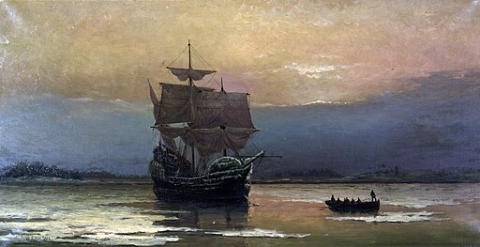
In 1833, the British Empire made a significant departure from its historical practice of slaveholding by passing the Slavery Abolition Act, a landmark legislation that would eventually lead to the emancipation of millions of enslaved individuals across the Empire. This momentous Act represented the culmination of years of relentless campaigning by abolitionists, who had worked tirelessly to combat the inhumane treatment and exploitation of enslaved people. The abolition of slavery represented a significant advance in human rights, as it recognised the inherent dignity and freedom of every individual.
The Act not only liberated those who were enslaved, but also set a powerful precedent for other nations to follow, highlighting the importance of justice and equality and laying the groundwork for future human rights movements. However, the transition to freedom was not without its challenges, as many formerly enslaved individuals faced significant economic and social obstacles as they sought to build new lives. The legacy of slavery had a profound and enduring impact on societies, characterised by entrenched inequalities and prejudices that persisted long after the abolition of the institution.
The Slavery Abolition Act of 1833 stands as a seminal moment in history, symbolising the triumph of justice and the ongoing struggle for human rights. It serves as a poignant reminder of the imperative to confront injustice and strive towards a more equitable and just world.
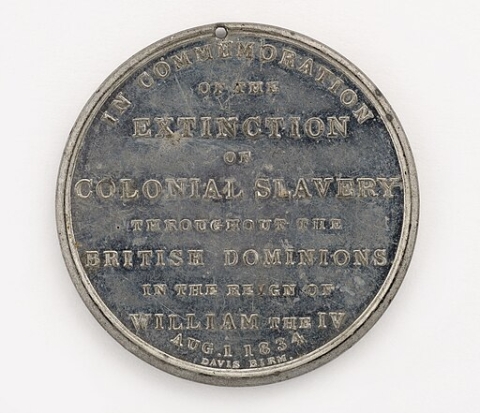
The Cipaye Revolt of 1857, also referred to as the Indian Rebellion or the Sepoy Mutiny, signified a pivotal moment in the annals of British India. This widespread uprising was propelled by manifold grievances, encompassing economic exploitation, cultural insensitivity, and the introduction of novel military practices that encroached upon Indian religious beliefs. The revolt, which was initiated by Indian soldiers, known as sepoys, and civilians, represented a significant challenge to British rule and was a catalyst for the quest for autonomy.
Despite the eventual suppression of the revolt, its profound and lasting impacts on British colonial administration were profound. In response to the revolt, the British government recognised the need for significant reforms to prevent such uprisings in the future. Consequently, the British Crown assumed direct control of India from the East India Company, leading to the establishment of the British Raj. This transition entailed substantial modifications to policies and governance, including endeavours to assimilate Indian elites into the administration and to address some of the economic and social issues that had fuelled the revolt. The Cipaye Revolt also sowed the seeds for the eventual independence movement, highlighting the deep-seated discontent with British rule and inspiring future generations of Indian leaders and activists. The memory of the revolt became a potent symbol of resistance, serving as a unifying rallying point for those advocating for India's independence.
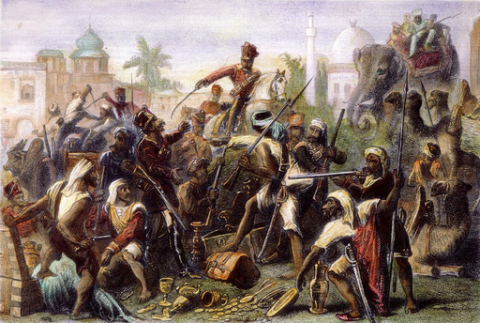
The formation of the Canadian Confederation in 1867 represented a pivotal moment in the nation's historical trajectory. This unification event brought together the provinces of Ontario, Quebec, New Brunswick, and Nova Scotia, uniting them into a single, self-governing entity under the British Crown. The impetus behind this union was the aspiration for enhanced autonomy, economic growth, and political stability.
The establishment of the Canadian Confederation enabled the provinces to function more efficiently as a unified entity, facilitating effective governance and coordination among them. The Canadian Confederation established a federal system that balanced regional interests with national unity, paving the way for the future integration of additional provinces and territories. This new political structure enabled Canada to manage its own affairs more independently, while still maintaining ties to the British Empire.
Economically, the Confederation paved the way for significant growth and prosperity, allowing the unified nation to undertake large-scale infrastructure projects, such as the transcontinental railway, which facilitated trade and movement across the vast country. This economic development attracted immigrants, boosted industries, and helped establish Canada as a thriving and dynamic nation. The legacy of the Canadian Confederation is one of strength and resilience; it laid the foundation for a more autonomous and prosperous Canada, fostering a sense of national identity and unity. Understanding this pivotal moment is essential for appreciating the development and growth of Canada as a nation.

The independence of India and Pakistan from British Rule on 15 August 1947 signified the conclusion of colonial domination in the region, leading to the establishment of two sovereign states. The independence movement, spearheaded by prominent figures such as Mahatma Gandhi and Muhammad Ali Jinnah, was characterised by a profound aspiration for autonomy. Gandhi’s non-violent civil disobedience and Jinnah’s advocacy for a separate Muslim state proved instrumental in the struggle against British Rule. The British Library asserts that Gandhi's philosophy of non-violence and civil disobedience exerted a considerable influence on the Indian independence movement, attracting considerable international attention and support. Conversely, Jinnah's role in advocating for the rights of Muslims in India was instrumental in the establishment of Pakistan as a distinct nation.
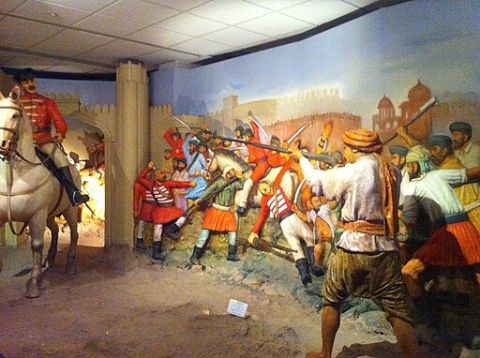
In 1957, Ghana attained independence, becoming the first African colony to achieve this feat, thereby establishing a precedent for other decolonisation movements across the continent. Under the leadership of Kwame Nkrumah, Ghana's independence was realised through a combination of diplomatic negotiations and political manoeuvring. Nkrumah's leadership and vision were pivotal in the struggle for independence, and he espoused the ideology of Pan-Africanism, seeking to unify African nations in opposition to colonial rule. According to the British Broadcasting Corporation (BBC), Nkrumah's efforts included extensive negotiations with the British government, mass mobilisation of the people, and strategic alliances with other African leaders. His leadership culminated in the declaration of independence on 6 March 1957, making Ghana the first sub-Saharan African country to break free from colonial rule.
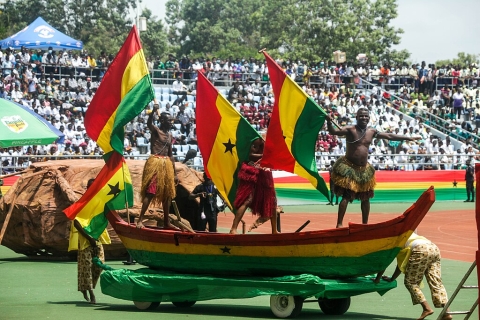
The year 1960 is often referred to as the 'Year of Africa' due to the remarkable wave of decolonisation that occurred during that period, resulting in 17 African countries gaining independence from colonial rule. This pivotal moment in the continent's history marked the beginning of nations across Africa asserting their sovereignty and shaping their own futures. The independence movements of these countries were driven by a profound desire for freedom and self-determination, influenced by earlier successes, notably Ghana's independence in 1957.
Among the countries that gained independence in 1960 were Nigeria, Senegal, Mali, Madagascar, Congo (Kinshasa), and Somalia. Each of these nations had their unique struggles and leadership, yet they shared a common goal of ending colonial domination and shaping their own destinies. As noted by the United Nations, the decolonisation process in Africa was a significant step towards global political changes and the assertion of human rights and equality. The "Year of Africa" not only marked the end of colonial rule for these 17 nations but also set a precedent for other African countries to follow. This period ignited further independence movements throughout the continent, leading to the eventual liberation of nearly all African nations from colonial powers by the end of the 20th century.
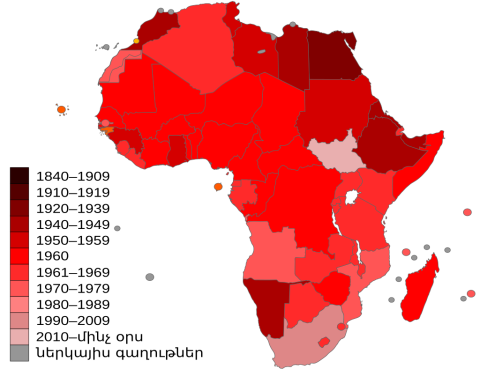
In 1994, the election of Nelson Mandela as the first black president of South Africa represented a pivotal moment in the nation's history, signifying the conclusion of the apartheid era. The apartheid regime, characterised by racial segregation and discrimination, had exerted its oppressive grip on the majority black population for decades. Mandela's election thus marked the pinnacle of a protracted and arduous struggle for freedom and equality, spearheaded by innumerable activists and bolstered by global solidarity.
Mandela's presidency was a significant step towards achieving racial equality and fostering national reconciliation in South Africa. His leadership was characterised by a commitment to healing the deep divisions within the country and building a new, inclusive society. Mandela's vision of a "Rainbow Nation" aimed to unite people of all races and backgrounds, fostering a sense of shared identity and purpose. The end of apartheid and Mandela's election also brought about substantial political and social changes. The new democratic government implemented policies to redress the injustices of the past, promote economic development, and improve the living conditions of previously marginalised communities. These efforts included land reforms, educational initiatives, and programmes to combat poverty and inequality.
Nelson Mandela's legacy extends far beyond his presidency; he remains a global symbol of resilience, justice, and the power of forgiveness, and his life and work continue to inspire movements for human rights and social justice around the world.
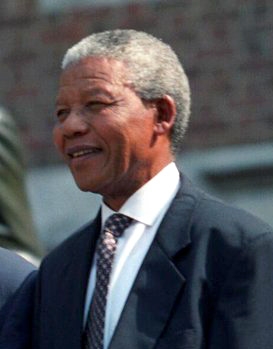
The transition of sovereignty over Hong Kong from the United Kingdom to the People's Republic of China in 1997 signified the conclusion of over 150 years of colonial rule and the advent of a new era for the region. This momentous geopolitical event was formally initiated on July 1, 1997, and was underpinned by the principle of "one country, two systems." This framework was designed to ensure that Hong Kong would maintain its own legal and economic systems, as well as a high degree of autonomy, while being part of China.
The handover was the result of extensive negotiations between the United Kingdom and China, culminating in the Sino-British Joint Declaration of 1984. This accord delineated the stipulations governing the transfer and the guarantees for Hong Kong's autonomy and way of life for a period of at least 50 years following the transition. The handover represented a momentous occasion, imbued with both celebration and uncertainty, for the populace of Hong Kong. Many in Hong Kong regarded the event as a hopeful step towards a future characterised by greater integration with China, while also preserving the unique characteristics that had defined the region under British rule. Economically, Hong Kong maintained its status as a global financial hub, benefiting from its strategic position and the "one country, two systems" arrangement. However, the years following the handover have been characterised by significant challenges and tensions. Issues related to political freedoms, autonomy, and the interpretation of the "one country, two systems" principle have led to widespread protests and international concern.
The evolving relationship between Hong Kong and mainland China continues to exert a profound influence on the region's political and social landscape. The 1997 handover is widely regarded as a pivotal moment in Hong Kong's history, symbolising both the conclusion of colonial rule and the intricate process of defining its identity and future within the framework of Chinese sovereignty.
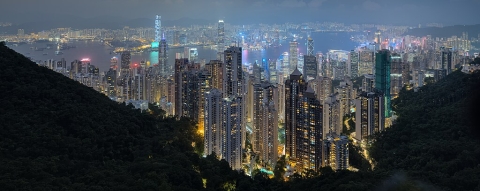
Shaka Zulu was a transformational leader and military strategist who reshaped the Zulu kingdom and southern Africa. Rising to power after his father’s death, Shaka introduced innovative tactics like the “bull horn” formation and the short stabbing spear (iklwa), revolutionising warfare. His leadership led to the unification of various tribes and the expansion of the Zulu state, initiating the Mfecane, a period of significant upheaval. While his methods were often brutal, Shaka’s impact on the region’s social, political, and demographic landscape was profound, laying the foundations for the modern Zulu nation and influencing the dynamics of southern Africa generations.
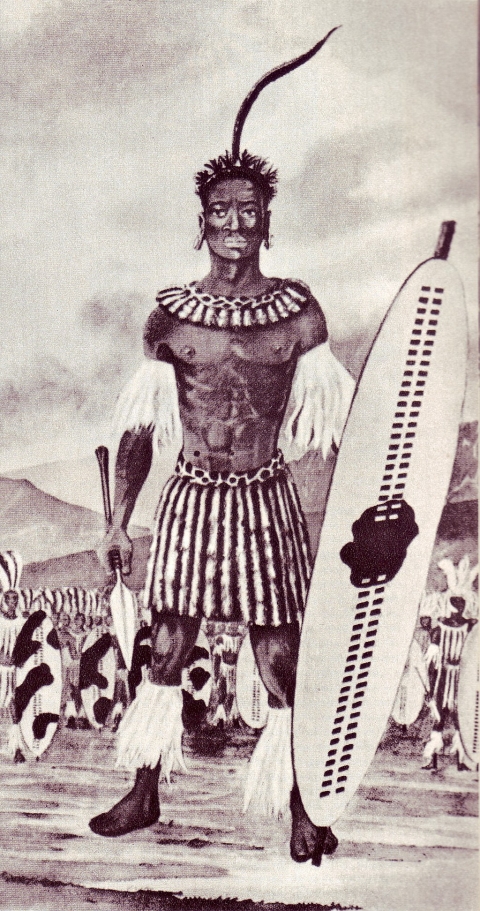
Known as the Tiger of Mysore, he was a formidable ruler of the Kingdom of Mysore in southern India. He succeeded his father, Sultan Hyder Ali, in 1782 and is celebrated for his staunch resistance against British colonial expansion. Tipu Sultan introduced military innovations, including the use of advanced rocketry, and sought alliances with foreign powers like France to counter British influence. Despite his efforts to modernise his army and administration he was ultimately defeated and killed in the Fourth Anglo-Mysore War in 1799. His legacy endures as a symbol of bravery and strategic acumen in the struggle against colonialism.
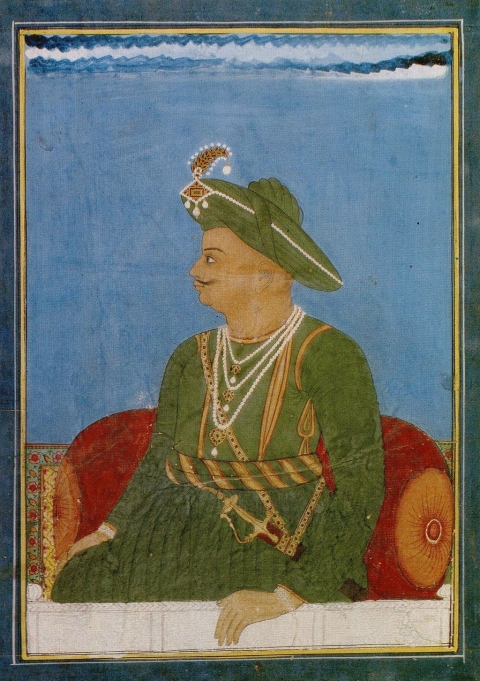
Born Mutsuhito, the 122nd emperor of Japan reigned from 1867 until his death in 1912. His reign, known as the Meiji era, marked a period of profound transformation in Japan. Under his leadership, Japan transitioned from a feudal society to a modern, industrialized nation. Emperor Meiji supported the adoption of Western ideas and technologies, which led to significant reforms, including the abolition of the feudal land system, the establishment of a new school system, and the creation of a constitutional government. His reign also saw Japan's victories in the First Sino-Japanese War and the Russo-Japanese War, establishing Japan as a formidable global power. Emperor Meiji's legacy is one of modernization and the successful integration of Western innovations with traditional Japanese culture.
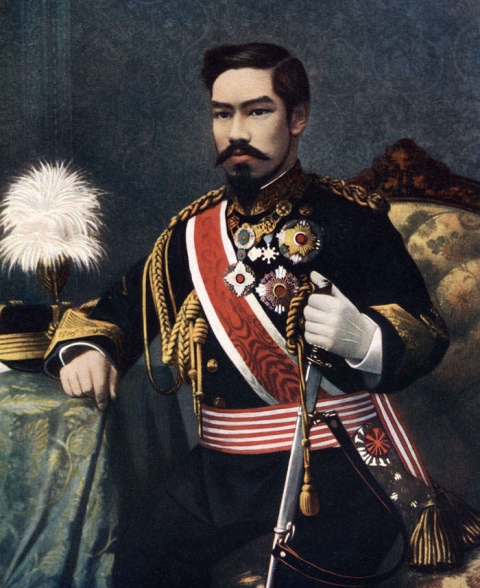
He was born Tafari Makonnen, and was the Emperor of Ethiopia from 1930 to 1974 and a definition in modern Ethiopian history. He sought to modernise Ethiopia, implementing progressive policies and centralising power. Selassie played a crucial role in international affairs, bringing Ethiopia into the League of Nations and the United Nations, and making Addis Ababa the headquarters of the Organization of African Unity (now the African Union). His reign saw Ethiopia’s resistance against Italian invasion during the Second Italo-Ethiopian War and his subsequent exile and return. Despite his effort to modernise the country, his reign ended when he was overthrown by a military coup in 1974. Haile Selassie is also revered in the Rastafarian movement as a messianic figure.
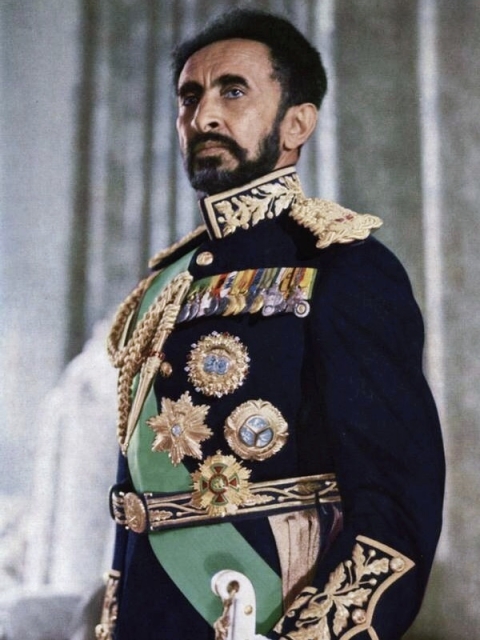
She is an American engineer, physician, and former NASA astronaut who made history as the first African-American woman to travel into space. She flew aboard the Space Shuttle Endeavour on the STS-47 mission in 1992, orbiting Earth for over a week. Jemison's early interest in science was nurtured by her family, and she pursued degrees in chemical engineering and African and African-American studies at Stanford University, followed by a medical degree from Cornell University. Before joining NASA, she served as a medical officer in the Peace Corps in West Africa. After leaving NASA in 1993, Jemison founded a technology research company and a non-profit educational foundation, continuing to inspire future generations through her work and advocacy.
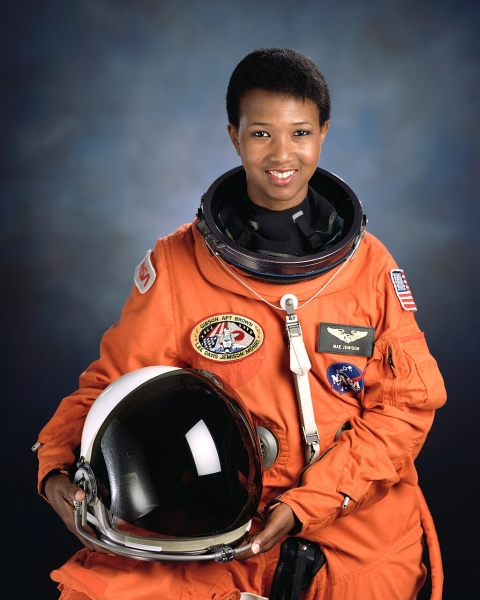
Lupita Nyong'o is a Kenyan-Mexican actress renowned for her powerful performances and significant contributions to film. Born in Mexico City to Kenyan parents, she was raised in Kenya and later pursued higher education in the United States, earning a degree in film and theatre studies from Hampshire College and an MFA from the Yale School of Drama. Nyong'o gained international acclaim for her role as Patsey in the film “12 Years a Slave” (2013), for which she won the Academy Award for Best Supporting Actress. She has since starred in major films such as “Black Panther”, “Us”, and the “Star Wars” sequel trilogy.
Beyond her acting career, Nyong’o is an advocate for women’s rights, animal rights, and historic preservation. She is also a published author, with her children’s book “Sulwe” becoming a New York Times bestseller.
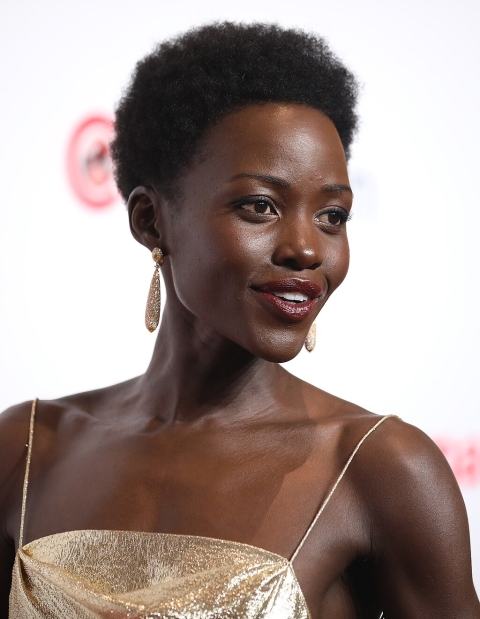
She is an American former professional tennis player widely regarded as one of the greatest athletes of all time. She turned professional in 1995 and quickly rose to prominence, winning her first Grand Slam singles title at the 1999 US Open. Over her illustrious career, Serena won 23 Grand Slam singles titles, the most in the Open Era, and held the world No. 1 ranking in women's singles for 319 weeks. Known for her powerful playing style and relentless determination, she also achieved a Career Golden Slam in both singles and doubles, a feat unmatched in tennis history. Beyond her on-court success, Serena has been a trailblazer for gender and racial equality, using her platform to advocate for social change and inspire future generations. She retired from professional tennis in 2022, leaving an indelible mark on the sport and beyond.

Ocean Vuong is a Vietnamese-American poet, essayist, and novelist known for his evocative and lyrical writing. Born in Ho Chi Minh City, Vietnam, Vuong immigrated to the United States as a child and grew up in Hartford, Connecticut. He earned a BA from Brooklyn College and an MFA from New York University. Vuong's debut poetry collection, Night Sky with Exit Wounds (2016), received critical acclaim and won the T.S. Eliot Prize. His debut novel, On Earth We're Briefly Gorgeous (2019), became a New York Times bestseller and was longlisted for the National Book Award. Vuong's work often explores themes of identity, family, and the immigrant experience, and he has received numerous accolades, including a MacArthur "Genius" Grant.
